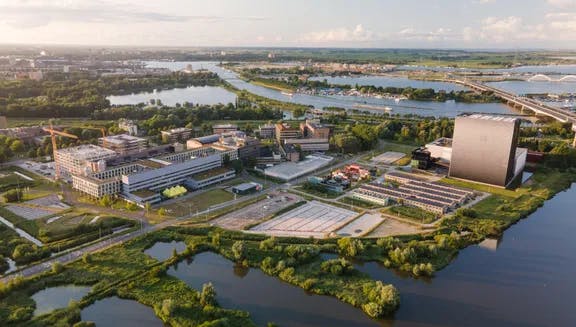
City data
We welcome startups with a mission to add something to this world and invite you to connect to your surroundings: Amsterdam. We have lots of data available that could be incorporated in your algorithms, help you build a business case or find your users. Below are the top six data sources. If you are looking for more or need help interpreting the data please contact our data centre.
1. data.amsterdam.nl
A one-stop (open) data shop for all the city’s open data. Browse through approximately 300 data sets and over 1.700 files, covering real-time info (e.g. on public transport, road traffic, parking garages etc), highly relevant up-to-date sets (tourism, POIs, electricity usage, road works, spending), all Excel files from the City’s statistics department and more – much more.
Information can be requested through web services and integrated into your application or just consulted or downloaded. Click here for an overview of all information (Dutch link). Don’t understand Dutch? Just contact our data centre.
2. Maps of Amsterdam
Are beautiful visualisations your thing? Maps.Amsterdam.nl is your channel for a whole variety of them. Started by fanatic developer Klaas Bindert de Haan a couple of years ago, it even made it on to the National Geographic Channel for its beautiful visualisations. A favourite is the city agriculture map, where you can find urban farmers. Another approach to maps of the city is kaart.amsterdam.nl (yes, it’s a different website!). On the ‘Map of all maps’ you can select a theme and find up-to-date open data. For example, you can find out location and times for planned construction. Be sure to check out this website before you open your first physical shop or decide to move your office. A cool feature is that you can get updates when new information, like restaurants, is added for a selected area and/or theme. And don't forget about our awesome Amsterdam startup map.
3. Dashboard Kerncijfers OIS (BBGA)
This dashboard hosts all the open census data of the City of Amsterdam. Select an area or a domain and see how the city has been changing over time in different neighbourhoods. For all you hardcore data crunchers: a dashboard is a good start, but you will want to be able to play with the data, too. Good news: You have access to all the open data of the city in one file (.csv or .xls), the Basisbestand Gebieden Amsterdam. You can also use the API. Meta information tells you when new updates are expected and why and how data is collected.
4. Come to Datalab!
Data would be only numbers if it wasn’t for people. Data come to life through people, who create applications or new concepts. Early this year, Amsterdam’s Datalab was opened, a place to experiment with urban data for everyone: companies, universities and civil servants. They organise weekly events and have a place for you to work on city data. Stay posted by following the Meetup group or just drop by.
5. IoT Data
Amsterdam is a pioneer of the Internet of Things. The global LoRa network was founded in Amsterdam, and the brand-new Amsterdam Open Beacon network was launched in September 2016. How does it work? 300 beacon sensors are spread across the city, located near public transport hubs. Developers of startups can use the network for free, integrating it into their own applications.
Other data
All right, Amsterdam may be the centre of the world, but there are also some non-Amsterdam data. Of course, if you build your product, you’d better use data that is standardised. CBS provides national census data. A good entry website for open data is data.overheid.nl.
Haven’t found what you are looking for? It could well be that the data you would like to have does exist, but is not shared online. Contact Gemeente Amsterdam's data centre, which might be able to put you on the right track. We are open to data partnerships, like the one we have with Google: we pool data to find out if we can predict traffic flows better, Google tests their product for the smart city market and our citizens benefit.
Related articles

Five Dutch tech breakthroughs that changed the world

Amsterdam in international rankings

How has Covid-19 impacted the future of Amsterdam’s startup scene?

How Amsterdam’s startups are using AI to make the world a better place

International hiring and working remotely

8 tips for getting your dream job at a startup

10 reasons startups choose and love Amsterdam
